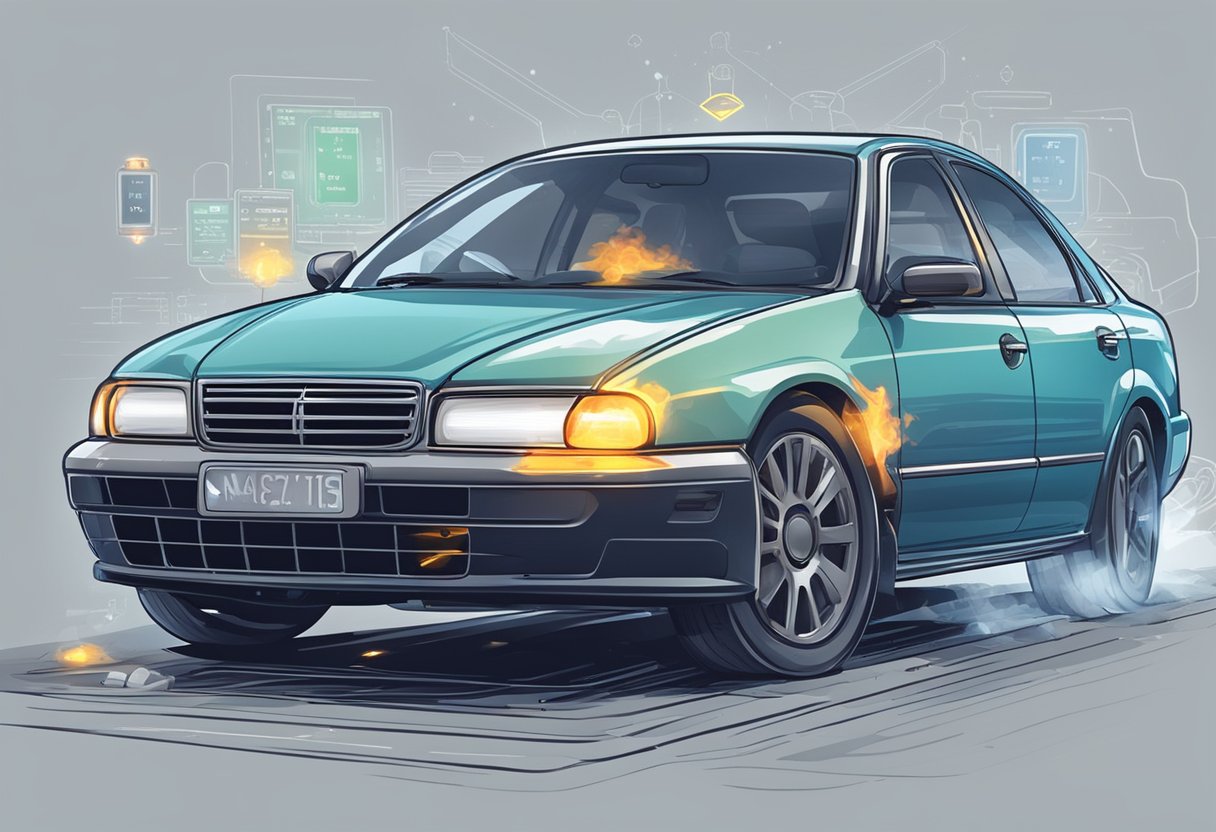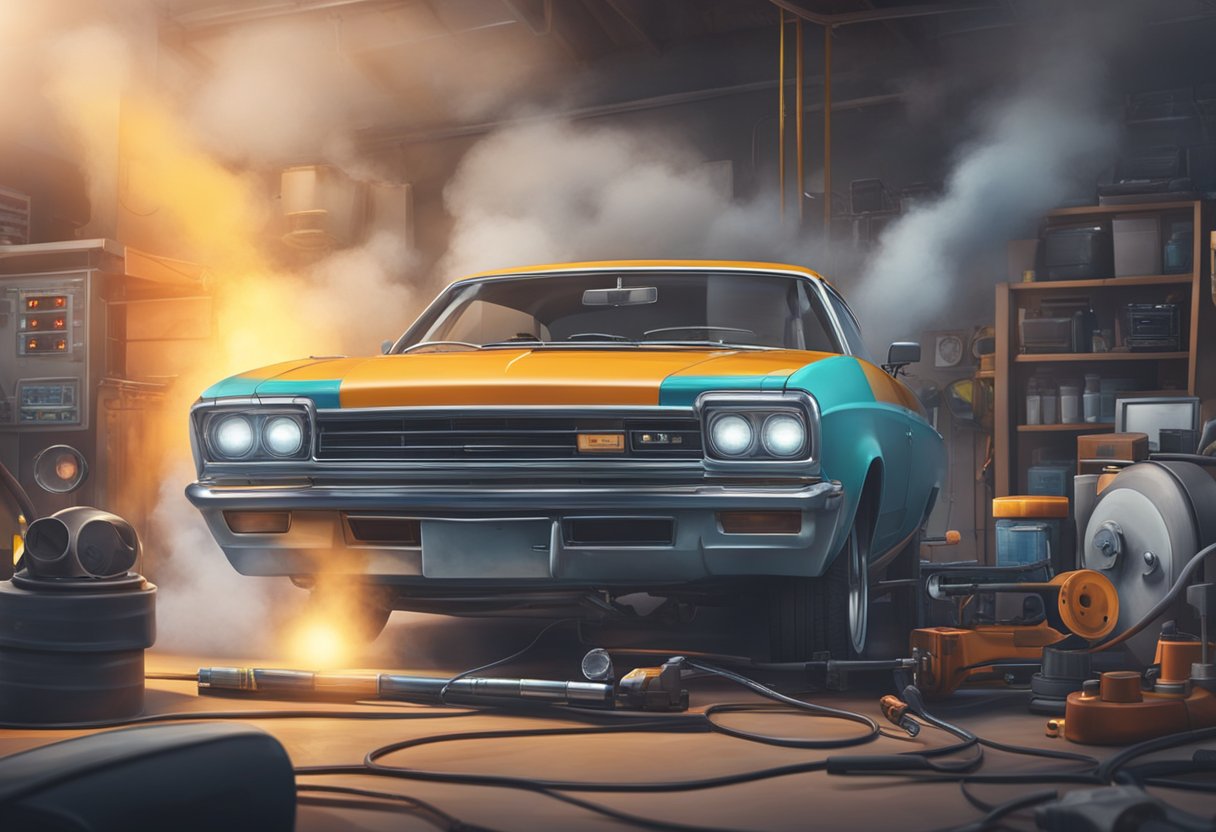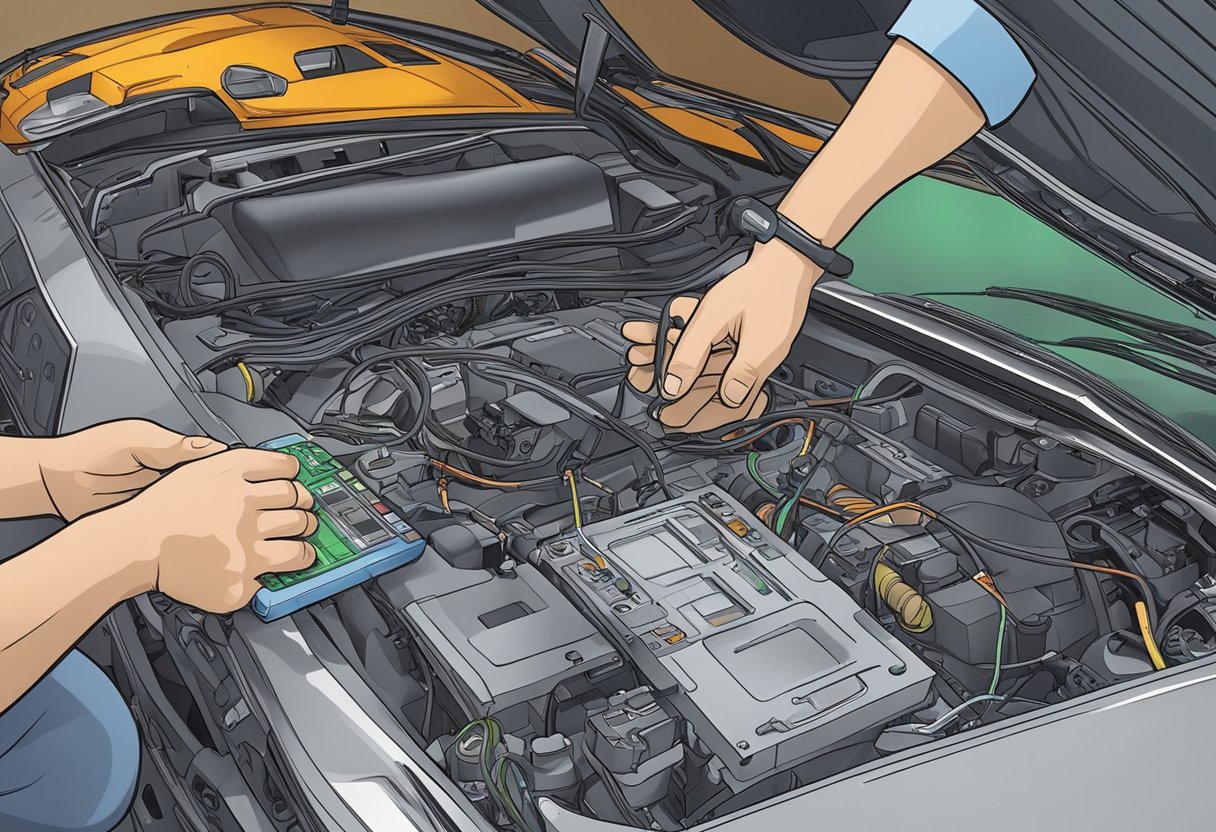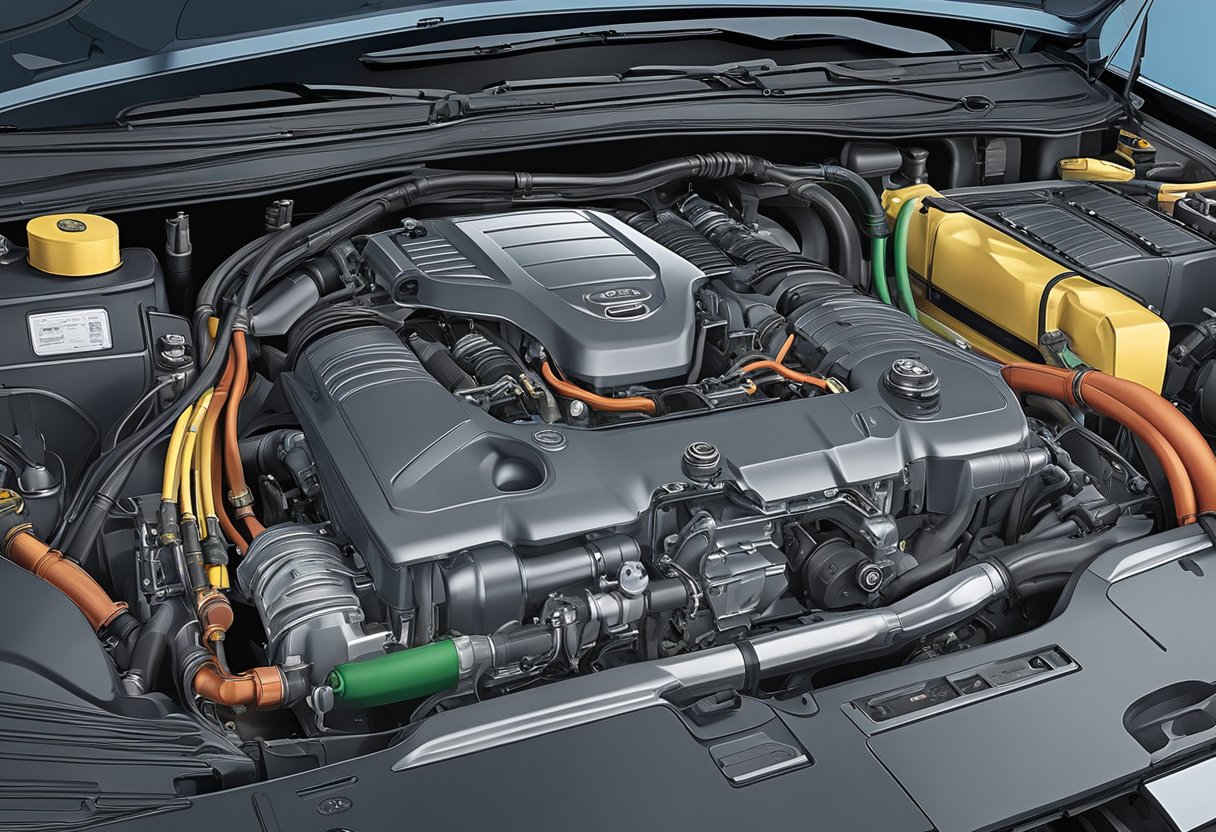Understanding Car PCM: Symptoms of Failure and Repair Insights
If you’re a car owner, you’re likely familiar with the term “PCM” or Powertrain Control Module.
This essential component is responsible for controlling the engine and transmission of your vehicle, ensuring that it runs smoothly and efficiently.
However, like any other part of your car, the PCM can fail, and when it does, it can cause a range of symptoms that can be difficult to diagnose.
One of the most common symptoms of a failing PCM is a check engine light that won’t go away.
This light can indicate a range of issues, from a minor sensor problem to a major engine malfunction.
However, if you’ve already had your car checked by a mechanic and they can’t find a problem, it’s possible that the issue lies with the PCM.
Other symptoms of a failing PCM can include rough idling, poor acceleration, and even stalling while driving.
Fundamentals of Car PCM
Defining PCM in Automotive Context
The Powertrain Control Module (PCM) is an essential component of modern cars.
It is a type of electronic control unit (ECU) that manages the engine and other powertrain systems.
The PCM receives data from various sensors and uses that information to control the engine’s fuel injection, ignition timing, and other critical functions.
The PCM is responsible for monitoring and adjusting engine performance to ensure optimal fuel efficiency and emissions control.
It also controls other powertrain systems, such as the transmission and emissions control systems.
In short, the PCM is the brain of the car’s powertrain system.
Core Functions of PCM
The PCM performs several core functions that are essential to the proper operation of a car’s powertrain system.
These functions include:
-
Sensor Management: The PCM receives data from various sensors located throughout the engine and powertrain system, such as the oxygen sensor, throttle position sensor, and engine coolant temperature sensor.
It uses this data to adjust engine performance and ensure optimal fuel efficiency and emissions control.
-
Fuel Management: The PCM controls the fuel injection system, which delivers fuel to the engine.
It adjusts the fuel delivery based on the data received from the sensors to ensure the engine is running at peak efficiency.
-
Ignition Timing: The PCM controls the ignition timing, which determines when the spark plugs fire.
It adjusts the timing based on the data received from the sensors to ensure optimal engine performance.
-
Transmission Control: In cars with automatic transmissions, the PCM controls the transmission’s shifting patterns based on the data received from the sensors.
It ensures smooth shifting and optimal performance.
-
Emissions Control: The PCM controls the emissions control systems, such as the catalytic converter and exhaust gas recirculation (EGR) system.
It ensures that the car meets emissions standards and reduces harmful pollutants.
In summary, the PCM is a critical component of modern cars.
It manages the engine and other powertrain systems, ensuring optimal performance, fuel efficiency, and emissions control.
By understanding the fundamentals of car PCM, you can better diagnose and repair issues with your car’s powertrain system.
Recognizing PCM Failure
If your car’s Powertrain Control Module (PCM) is failing, you may experience a range of symptoms that can impact your vehicle’s performance.
In this section, we’ll explore the most common symptoms of PCM failure and how to diagnose them.
Common Symptoms
Here are some of the most common symptoms of PCM failure:
-
Engine misfires or stalls: If your engine is misfiring or stalling, it could be a sign that your PCM is not functioning properly.
This could be due to a faulty fuel injector, spark plug, or other component that is controlled by the PCM.
-
Poor fuel economy: If your car is using more fuel than usual, it could be a sign that your PCM is not regulating the fuel system correctly.
This could be caused by a faulty sensor or other component that is controlled by the PCM.
-
Check engine light: If your check engine light is on, it could be a sign that your PCM is detecting a problem with your vehicle’s emissions system.
This could be due to a faulty sensor or other component that is controlled by the PCM.
-
Transmission problems: If you’re experiencing transmission problems, such as rough shifting or slipping gears, it could be a sign that your PCM is not communicating properly with the transmission control module.
Diagnostic Trouble Codes
If you’re experiencing any of the symptoms listed above, it’s important to have your vehicle diagnosed by a qualified mechanic.
They will use a diagnostic scanner to read any Diagnostic Trouble Codes (DTCs) that are stored in your car’s PCM.
These codes can help identify the specific component that is causing the problem.
It’s important to note that not all PCM failures will result in a DTC being stored.
In some cases, the PCM may simply stop communicating with other components in your vehicle, which can make diagnosis more difficult.
In conclusion, recognizing the symptoms of PCM failure is crucial in maintaining your vehicle’s performance.
If you suspect that your PCM is failing, it’s important to have it diagnosed and repaired by a qualified mechanic to avoid further damage to your vehicle.
Consequences of PCM Neglect
Neglecting your car’s PCM can lead to severe consequences that can impact your vehicle’s performance and even cause secondary damage.
Here are some of the consequences of PCM neglect:
Impact on Vehicle Performance
A faulty PCM can cause a range of performance issues, such as poor acceleration, stalling, and rough idling.
You may also notice problems with your car’s fuel efficiency, as the PCM controls the fuel injection system.
If you ignore these symptoms and continue to drive with a faulty PCM, you risk damaging other components of your vehicle, such as the catalytic converter and oxygen sensors.
Potential for Secondary Damage
In addition to affecting your car’s performance, a faulty PCM can also cause secondary damage to other components of your vehicle.
For example, if the PCM is not providing the correct signals to the transmission, it can cause the transmission to shift incorrectly, which can lead to premature wear and tear.
Similarly, if the PCM is not regulating the voltage to the alternator correctly, it can cause the alternator to overcharge or undercharge, which can damage the battery and other electrical components.
To avoid these consequences, it is essential to have your car’s PCM checked regularly and repaired or replaced if necessary.
Ignoring the symptoms of a faulty PCM can lead to costly repairs and even put your safety at risk.
What Are the Symptoms of Car PCM Failure and What Should I Do If I Notice Them During a State Car Inspection?
If you notice symptoms of car PCM failure during a state car inspection, such as the engine misfiring or stalling, it’s crucial to address the issue promptly. State car inspection duration details may vary, but regardless, it’s essential to have the PCM checked and repaired by a qualified mechanic to ensure your vehicle passes inspection.
Are Common Issues with GMC Terrain Related to PCM Failure?
When it comes to GMC Terrain reliability issues, PCM failure is a common concern. Owners have reported various problems such as engine stalling, rough idling, and difficulty with starting the vehicle. If you are experiencing any of these issues, it is important to have your PCM system thoroughly checked and diagnosed by a professional.
Can a Failing Car PCM Cause Tire Patching Issues?
Yes, a failing car PCM can definitely cause tire patching issues. When the PCM malfunctions, it can lead to a variety of issues with the vehicle’s systems, including the tire pressure monitoring system. If the tire pressure isn’t properly monitored, it can lead to premature tire wear and potentially affect the lifespan of patched tire.
Can a Faulty PCM Cause Common Problems in the Chevrolet Camaro?
Yes, a faulty PCM can lead to various chevrolet camaro reliability issues. It can cause problems with the engine, transmission, and overall vehicle performance. From stalling and misfiring to issues with starting and shifting, a faulty PCM can create a range of common problems in the Chevrolet Camaro.
Repairing a Faulty PCM
If you suspect that your car’s PCM is faulty, you may be wondering if you should try to repair it yourself or take it to a professional.
Here are some things to consider:
DIY Versus Professional Repair
If you have experience working on cars and feel confident in your ability to diagnose and repair the issue, you may be able to fix a faulty PCM yourself.
However, keep in mind that working on a PCM can be complicated, and if you make a mistake, you could cause further damage to your car.
On the other hand, taking your car to a professional can be expensive, but it ensures that the repair is done correctly.
A professional mechanic will have the tools and expertise needed to diagnose and repair the issue.
Replacement and Reprogramming
If your PCM is beyond repair, you will need to replace it.
When replacing a PCM, it is important to make sure that the replacement part is compatible with your car’s make and model.
Once the new PCM is installed, it will need to be reprogrammed to work with your car’s systems.
This process can be complicated, and it is important to make sure that it is done correctly to avoid further issues.
Overall, repairing a faulty PCM can be a complicated process.
If you are not confident in your ability to diagnose and repair the issue, it is best to take your car to a professional mechanic.
However, if you do decide to try to repair the PCM yourself, make sure to do your research and proceed with caution.
Maintenance Tips for PCM Longevity
To ensure your car’s PCM lasts as long as possible, it’s important to follow these maintenance tips:
-
Keep your car’s battery in good condition. A weak or failing battery can cause voltage spikes that can damage the PCM.
Regularly check your battery’s voltage and replace it if necessary.
-
Keep your car’s electrical system in good condition. Loose or corroded connections can cause voltage drops that can damage the PCM.
Regularly inspect and clean your car’s electrical connections.
-
Keep your car’s cooling system in good condition. Overheating can cause damage to the PCM.
Regularly check your car’s cooling system for leaks, and replace any damaged components.
-
Avoid using aftermarket performance chips or tuners.
These devices can cause the PCM to work outside of its intended parameters, which can lead to damage.
-
Regularly check for PCM error codes.
If you notice any error codes related to the PCM, have them diagnosed and repaired as soon as possible to prevent further damage.
By following these maintenance tips, you can help ensure that your car’s PCM lasts as long as possible, saving you time and money in the long run.
As an Amazon Associate we earn from qualifying purchases.















